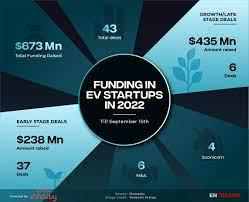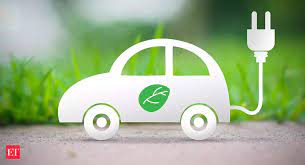Tata Motors and Mahindra apply brakes on EV fundraise plans
In a surprising move, two of India’s leading automotive giants, Tata Motors and Mahindra & Mahindra, have decided to put their electric vehicle (EV) fundraising plans on hold. Both companies were previously committed to investing heavily in the development and production of electric vehicles, but recent market volatility and economic uncertainty have compelled them to reconsider their strategies. This article examines the reasons behind their decision and the potential implications for India’s EV industry.

Market Volatility and Uncertainty: Tata Motors’ Perspective
Tata Motors, the parent company of Jaguar Land Rover (JLR), had set ambitious targets for electrification, aiming to make JLR a leader in the global EV market. However, the automotive industry has faced numerous challenges in recent times, including semiconductor shortages, rising raw material costs, and fluctuating demand due to the ongoing COVID-19 pandemic. These factors have significantly impacted Tata Motors’ financial position and raised concerns about the feasibility of their EV fundraising plans.
The company’s decision to pause its EV fundraising efforts is driven by a need to reassess its financial priorities and ensure the sustainability of its overall operations. Tata Motors aims to address the immediate challenges it faces in the market and stabilize its financial position before committing significant resources to EV development and production.
Mahindra & Mahindra’s Delayed Electric Vehicle Investment
Mahindra & Mahindra, one of India’s leading automobile manufacturers, has also opted to postpone its EV fundraising plans. The company had been actively working on electric vehicle technologies and had planned substantial investments to expand its EV portfolio. However, the recent economic concerns, coupled with uncertainties surrounding the EV market’s growth potential, have prompted Mahindra & Mahindra to take a cautious approach.
The global economic slowdown, inflationary pressures, and trade tensions have created an atmosphere of uncertainty, making investors and companies alike wary of committing significant funds to new projects. Mahindra & Mahindra’s decision to delay its EV investment aims to ensure financial prudence and align its strategy with the prevailing market conditions.
Implications for India’s EV Industry

The decision by Tata Motors and Mahindra & Mahindra to put their EV fundraising plans on hold may have wider implications for India’s electric vehicle industry. These two companies have been at the forefront of EV development and have played crucial roles in shaping the country’s transition to electric mobility.
The pause in fundraising could slow down the pace of innovation and impede the growth of the EV ecosystem in India. It may also impact the government’s ambitious plans to increase EV adoption and reduce carbon emissions.
Tata Motors and Mahindra & Mahindra’s contributions and investments in the EV sector were instrumental in driving technological advancements and building charging infrastructure, which could now face temporary setbacks.
However, it is important to note that this decision does not signal a complete withdrawal from the EV space. Both Tata Motors and Mahindra & Mahindra remain committed to electric mobility in the long run, but they seek to navigate the current economic uncertainties prudently. They will likely monitor market conditions closely and resume their EV fundraising plans once the conditions are more favorable.
Tata Motors and Mahindra & Mahindra’s decision to apply brakes on their electric vehicle fundraising plans reflects the challenging economic environment and market volatility that has gripped the automotive industry.
While this pause may temporarily slow down the pace of EV development and investment in India, both companies remain committed to electric mobility in the long term. As the market stabilizes and uncertainties recede, it is expected that Tata Motors and Mahindra & Mahindra will reinvigorate their EV initiatives, contributing to the growth and transformation of India’s electric vehicle industry.













